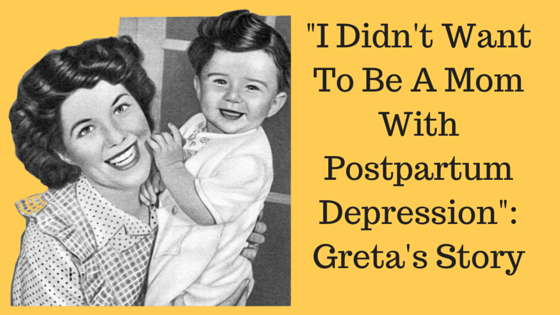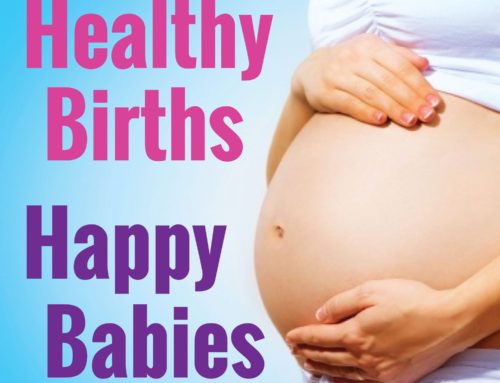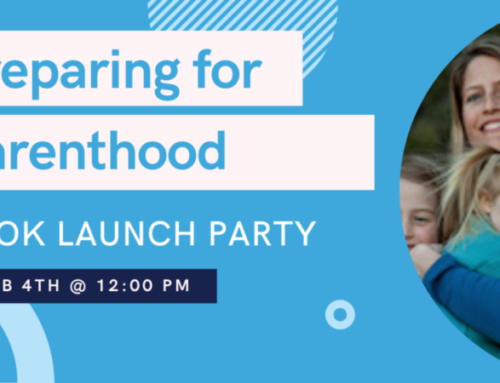One would be hard-pressed to find a kinder, friendlier, more loving woman than Greta.
Greta is a beam of sunshine in any room. She is open, social, and positive.
She connects easily with seemingly everyone, including children, who adore her. Greta dreamed of being a mother from a young age, and was thrilled when she discovered she was pregnant.
But Greta was also one of the many women who struggled with postpartum depression. And, in its aftermath, she is still navigating the pieces her depression brought to light.
Three months after the birth of her first child, her son, Max, suddenly weaned himself. Max had some physical issues that had made it difficult for him to latch correctly while breastfeeding.
Greta not only experienced a rapid change in her hormones, including a return of her menstrual cycle, but she also began questioning her parenting. She had hoped to nurse her child through the first two years.
Greta had been working full-time before having her child. She enjoyed her work and loved the social environment it afforded. Now, she was home full-time, which was what she had wanted to do. But she felt isolated, and confused in her new role as a mom.
“I had been working full-time,” she said. “Then, two weeks later I was a mom, caring for a baby 24 hours a day. At about 4 months, I realized I wasn’t fitting into my old life anymore. But I also didn’t feel like I was being a mother as well as I wanted to.”
Looking back, Greta said she didn’t really realize that she had postpartum depression after Max was weaned. She thought it was simply what most women go through in the colossal transition to parenthood.
Greta became pregnant and miscarried a child when Max was 11 months old. Then, she became pregnant again with her daughter, Delilah, in her next cycle, at 12 months.
During this pregnancy, Greta said she experienced “terrible morning sickness” for the first trimester. However, in her second and third trimesters, she reported feeling “euphoric.” Greta said this experience “woke me up from my depression. I felt like my old self again.”
When Delilah was born, Greta was parenting two children under the age of two. “I was treading water,” she said. There was no time to think, and rarely time to really care for her own needs.
When Delilah turned one, Greta said she realized that her increasing lack of motivation and low self-confidence as a mother might be symptoms of something more serious.
“It took a few months of talking the symptoms through,” she said. “I didn’t want to be a mom with postpartum depression. It was in conflict with my personality.”
With encouragement from her husband and a few close friends, Greta sought counseling from a therapist trained in treating perinatal mood disorders. Greta worked with the therapist twice per month, for about six months.
“I realized I had a lot of guilt about not being able to parent the way I thought was the right way,” said Greta. “I had a lot of self-criticism about my parenting, and I was uber-sensitive about others’ comments about my parenting, even if they were trying to be positive and helpful.”
After six months of working together, her therapist suggested trying medication. Greta said she felt “guilt and shame” about this, and worried about how the medication might affect her and her family. After six weeks on the medication, Greta said she felt a difference. “I didn’t have as much self-judgment,” she said. She has continued to stay on the medication, though her children are older now.
Greta said it was helpful for her to hear in therapy that many women experience symptoms of depression in the postpartum period. She learned to have more trust in herself as a mother.
Greta also found support in a mom-and-babies group, which aided her in not feeling as isolated. There were times, Greta said, where she would only get out of the house once per day to walk with her kids, due to multiple naps. Sometimes, she would only see a couple of neighbors as she walked by. The weekly group helped her stay connected to other moms with young children.
Greta added that she would sometimes visit social media sites on the Internet when stuck at home. But these sites often had a sense of “falsity” to them, she said, where she wasn’t truly connecting with others in the way that she wanted to, and where it was easy to make comparisons to others that were untrue.
Additionally, Greta said she learned to be easier on herself, as parenting is a partnership. “I realized that I can set whatever goals I want in motion as a mom, but there is still another little person involved,” she said. “My child might have different ideas and goals.”
Greta said that through her therapy, she was able to dig deeply, and discovered that both depression and alcohol addiction run in her family. Though Greta had experimented with alcohol in more typical ways in high school, college, and in her twenties, she said she began noticing patterns in her drinking once she became a parent.
“I was over-stressed,” she said. “Sometimes I was drinking a glass or two to feel like an adult after being with the kids all day. Sometimes friends would come over with their young kids around dinner, and we’d have drinks. I felt like I deserved it.”
Although avoiding alcohol during pregnancy, Greta said she began drinking more when she had two young children – up to 3 to 5 drinks per day – and that she would wake up with a hangover once or twice per week. Many jokes were made between friends about how, after a challenging parenting day, alcohol was necessary. Pop culture books were written on this phenomenon, which helped Greta feel like drinking was a normal phenomenon for parents of young children.
Through therapy – which went from postpartum recovery to individual and marriage counseling – Greta said she realized she needed to make some changes in her life.
She stopped drinking completely. After the initial positive experience of sticking to her goal of sobriety, Greta said she experienced another bout of depression. But, as she began uncovering the reasons she had been using alcohol, and the accompanying buried feelings, she began a transformative path of healing and recovery.
She has stayed on the path since, both returning to her sunnier disposition, and merging this with a deep sense of groundedness and self-confidence. Her family, and all those who are touched by her beam of light, are the fortunate recipients of her journey towards health.
If you or someone you know is struggling with postpartum depression, don’t hesitate to seek help.
For more information on Postpartum Depression Treatment click here.







Leave A Comment